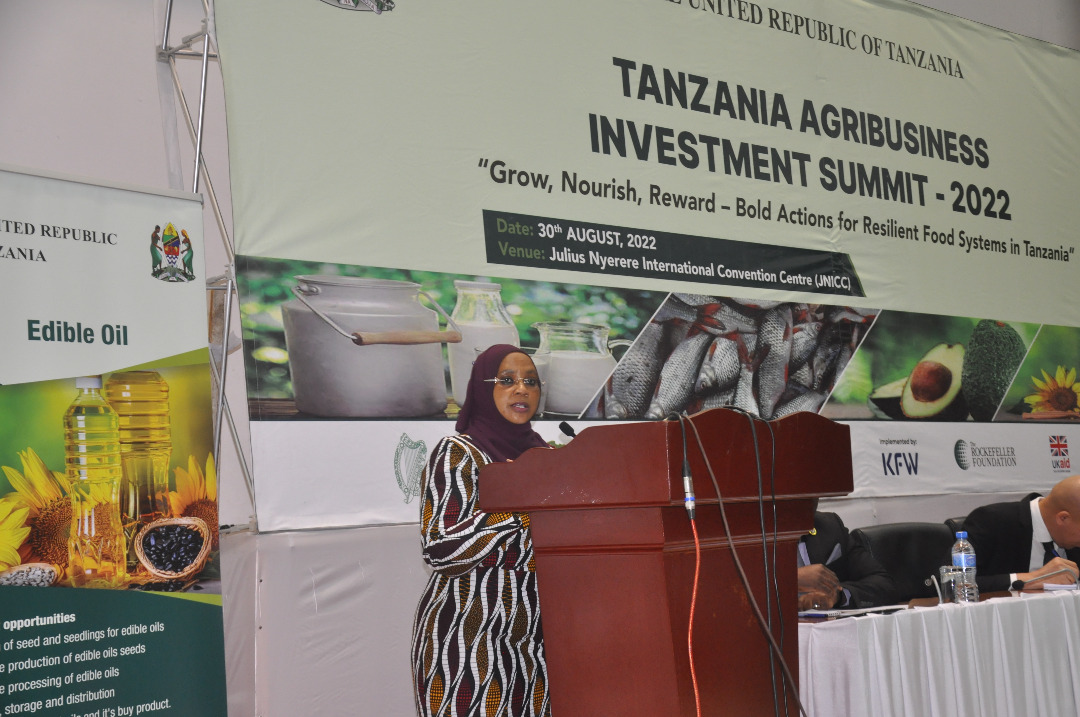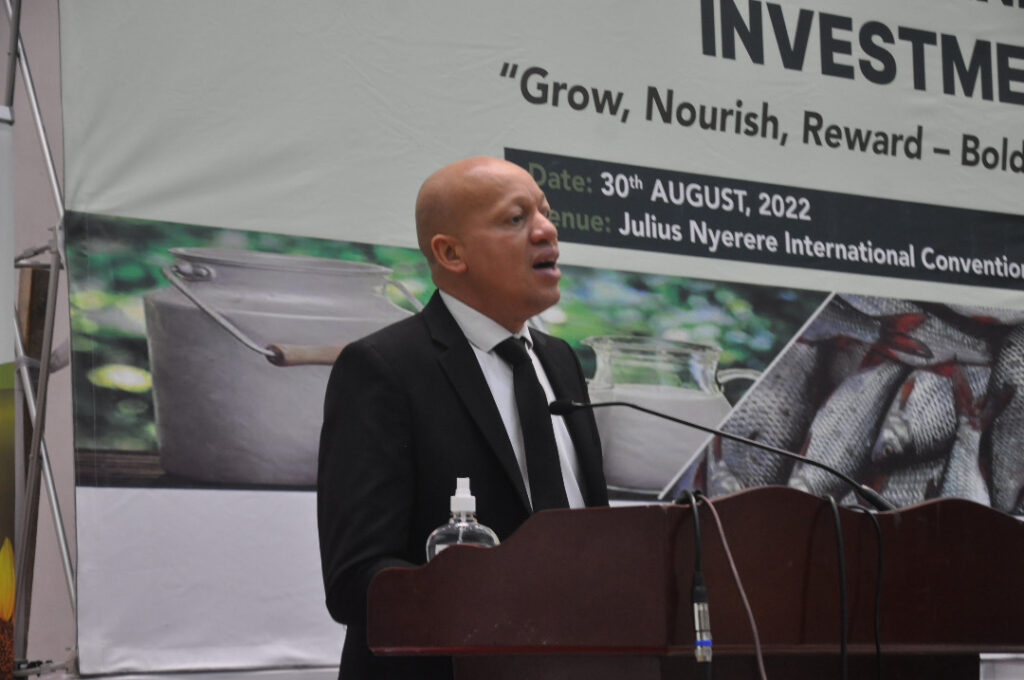
Tanzania’s vision is to be a global food supplier and the market leader in agro-industrialization in Africa. She said the achievement would be realized.
Dar es Salaam
Tanzania’s Minister of Investment, Industry and Trade, has called for concerted public and private sector actions to make Tanzania the centre of Africa and the world food trade.
The minister, Dr Ashatu Kijaji, was addressing the Tanzania Agribusiness Investment Summit 2022 that took place on 30th August 2022, in Dar es Salaam, with the theme “Grow, Nourish, Reward – Bold Actions for Resilient Food Systems in Tanzania.”
She was the chief guest at the summit to coalesce a national plan to be presented at the AGRF Summit, https://agrf.org/AGRFSummit/ in Rwanda, where President Samia Suluhusu Hassan is expected to be a keynote speaker.
The Government of Tanzania, under the Ministry of Investment, Industry and Trade (MIIT), in collaboration with the Ministry of Agriculture (MOA), Ministry of Livestock and Fisheries through the Tanzania Investment Centre (TIC) organized the one-day Tanzania Agribusiness Investment Summit 2022 (TAI Summit 2022). It had delegates from the public and private sectors as well as civil society and development partners. AGRA Vice President Dr Apollos Nwafor led the AGRA delegation to this summit which marked as the launch of the 2022 Agribusiness Dealroom to be held in Kigali, Rwanda.
Dr Kijaji said Tanzania’s vision is to be a global food supplier and the market leader in agro-industrialization in Africa. She said the achievement would be realized with the public and private sectors working together to benefit smallholder farmers.
Dr Kijaji, called on firms to pitch their agribusinesses at AGRF-supported African Agribusiness deal rooms to grow the sector. “We want to serve Africa from Tanzania; we want to serve the world from Tanzania through the agricultural sector,” she said. She noted that President Samia Suluhu Hassan approved the most significant annual agriculture budget ever in the history of Tanzania, close to TSH 1 trillion. Previously the budget was less than TSH 300 billion. (From 294 billion shillings to 9540 billion shillings) (almost 1 trillion). She said the vision was for Tanzania to provide local, continental and global food security with the nation’s immense God-given resources.
AGRA Vice President, Policy and State Capability, Dr Apollos Nwafor, commended Tanzania for prioritizing food systems transformations and assured that AGRA would continue to support government efforts to uplift the sector. He commended the country for spearheading agro-industrialization vision through the design and implementation of the Tanzania Agro-industrialization Development Flagship (TAIDF), which aims at mobilizing investments in agro-industrialization.
“President Samia Suluhu Hassan has shown outstanding commitment to creating a sustainable food system in Tanzania,” he said. He commended Tanzania for being ready to make Agriculture the driver of economic growth.
“I have seen evidence of that in the number of things Tanzania has proved not only it can feed itself, but it can feed the entire region,” he noted.
“Last year in 2021, the president of AGRA, Dr Agnes Kalibata led the UN Food Systems Summit where we have charts. We began to look at Africa’s leadership in driving food systems transformations where we look at regions, especially Tanzania on which food systems transformation has been accelerated drastically.”

“Today’s summit shows that Tanzania is ready to see and foster as a driver of economic growth. We should ensure we are not dependent on food imports. Statistics show that the continent spends an average of 55 to 60 billion dollars annually on food imports. Countries like Tanzania have excess maize, rice and other crops, for instance, horticulture.”
The Summit also involved Tanzania business pitching at The African Agribusiness Dealroom a year-round matchmaking platform at the African Green Revolution Forum (AGRF), which brings together capital seekers and providers.
The Agribusiness Dealrooms provide entrepreneurs in the agricultural and agribusiness sectors with upstream and downstream supply chain linkages, access to finance, and market entry solutions to support their growth objectives.
Background
Agriculture remains the largest sector in Tanzania’s economy as the main source of food, raw materials for industries, employment, and foreign exchange. Agriculture including crops, livestock, fisheries and forests, contributes about 30% of the Gross Domestic Product (GDP), 25% of export earnings and 65% of raw materials for industries. Agriculture employs about 67% of the employed population and contributes about 70% of the income of people in rural areas. Ninety-five percent of the food is locally produced and consumed with minimum processing, packaging, and storage for longer shelf life. About 65% of Tanzania’s population lives in rural areas where poverty is more prevalent. Tanzania agricultural sector is smallholder based with farmers who usually farm small and fragmented plots of an average of less than 2 hectares, for food and partly for sale to meet their other requirements.
About AGRA
AGRA is a farmer-centered, African-led, partnerships-driven institution that is working to transforming smallholder farming from a solitary struggle to survive to a business that thrives. In collaboration with its partners—including African governments, researchers, development partners, the private sector and civil society— AGRA’s work primarily focuses on smallholder farmers – men and women who typically cultivate staple crops on two hectares or less. AGRA is now recognized across the continent as a strong voice for African rural development, a prosperous agricultural economy, and for supporting thousands of small African businesses and millions of African families to improve agriculture as a way to ensure food security and improve their livelihoods.
